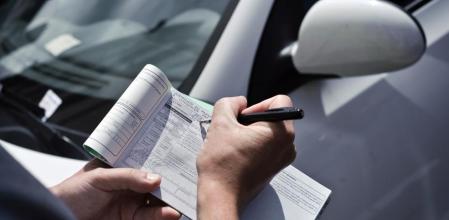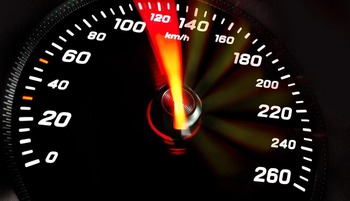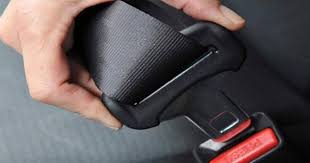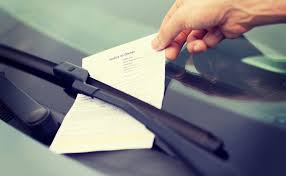What do tourists in Spain get fined for?
What are the most common offences committed by holidaymakers in Spain?
When going on holiday in Spain, regardless of whether it is a beach holiday or cultural tourism, it is necessary to follow the rules of the road on the road. This is known to everyone, but not every holidaymaker wants to think about the possible consequences. And in vain. Let's look at some of the main questions asked by customers who have used car rental services in Spain with us.If you have not yet had the opportunity to take advantage of our car rental service in Spain, Greece or Turkey, you can view our catalog of offers using the search form below:
Pickup point
Drop-off point
Pickup
Time
00:00
00:30
01:00
01:30
02:00
02:30
03:00
03:30
04:00
04:30
05:00
05:30
06:00
06:30
07:00
07:30
08:00
08:30
09:00
09:30
10:00
10:30
11:00
11:30
12:00
12:30
13:00
13:30
14:00
14:30
15:00
15:30
16:00
16:30
17:00
17:30
18:00
18:30
19:00
19:30
20:00
20:30
21:00
21:30
22:00
22:30
23:00
23:30
Drop-off
Time
00:00
00:30
01:00
01:30
02:00
02:30
03:00
03:30
04:00
04:30
05:00
05:30
06:00
06:30
07:00
07:30
08:00
08:30
09:00
09:30
10:00
10:30
11:00
11:30
12:00
12:30
13:00
13:30
14:00
14:30
15:00
15:30
16:00
16:30
17:00
17:30
18:00
18:30
19:00
19:30
20:00
20:30
21:00
21:30
22:00
22:30
23:00
23:30
Rental period: 7 d..
- If I get fined, how and who will pay for it? 
So it has happened - you have broken a traffic law in Spain! You have been stopped by the police for speeding: In this case, the officer will explain to you why you have been stopped, the offence and you will be asked to pay the fine. If you understand the reason for the stop and are aware of the offence, we recommend that you pay the fine on the spot and do not repeat the mistake or get a receipt and pay online or at the nearest bank branch. In case of a speeding offence detected by radar, you will be informed by postal notice. If you have rented a car in Spain, you will be contacted by the hire company and informed. Remember that fines are not covered by any type of insurance and must be paid by the customer. In addition to the fine, you may also have to pay the rental company's administrative fees related to postal transfers and sending certificates to local law enforcement agencies. Such administrative fees can range from 25 - 30 euros, depending on the terms of hire (the exact amount of the administrative fee we specify in the terms of hire, they are available for review before making a decision on the rental). The fine itself will be paid separately, on receipt of a postal notice sent directly from the police to your residence address.- What are the main road fines in Spain?
 - Speeding. In populated areas you must drive at a speed of no more than 50 km/h, in residential areas no more than 30 km/h. Outside populated areas - on the main main road the limit is 90 km/h, on motorways it is allowed to drive up to 120 km/h. In some cases (e.g. road bends) there are also restrictions. You only need to pay attention to the speed at which you are travelling on a particular stretch of road and to the signs indicating this speed. These numbers are constantly repeated, it is impossible not to notice them. In Spain they are very careful about this. The fine for not observing the speed limit - from 100 to 600 euros, depending, of course, on how much you exceeded it.
- Speeding. In populated areas you must drive at a speed of no more than 50 km/h, in residential areas no more than 30 km/h. Outside populated areas - on the main main road the limit is 90 km/h, on motorways it is allowed to drive up to 120 km/h. In some cases (e.g. road bends) there are also restrictions. You only need to pay attention to the speed at which you are travelling on a particular stretch of road and to the signs indicating this speed. These numbers are constantly repeated, it is impossible not to notice them. In Spain they are very careful about this. The fine for not observing the speed limit - from 100 to 600 euros, depending, of course, on how much you exceeded it.  - The seat belts are not fastened. They are compulsory on all seats, whether they are front or rear. If children under 135 cm tall are travelling with you, they must be in a car seat in the car. For not following these rules, the police can fine you 200 euros, or even more. This is a serious offence. Don't mess around with it.
- The seat belts are not fastened. They are compulsory on all seats, whether they are front or rear. If children under 135 cm tall are travelling with you, they must be in a car seat in the car. For not following these rules, the police can fine you 200 euros, or even more. This is a serious offence. Don't mess around with it.- Using a mobile phone while driving. This is strictly forbidden, postpone the conversation for later, or at least use a hands-free system (but it is better to call back later). You know it takes your attention away from the road. The fine is between 300 and 600 euros.
 - Driving while under the influence of alcohol. Refusing to undergo alcohol or drug testing or having a high blood alcohol or drug content. All this can deprive you of a significant part of your budget - from 500-1000 euros. And also a drunk driver can be prosecuted criminally. The permissible alcohol content in the blood of a driver: with less than 2 years of experience - 0.3 ppm (an hour after 0.25 litres of wine or 0.5 litres of beer); from two years - 0.5 ppm (an hour after 0.35 litres of wine or 0.6 litres of beer). You need to be careful with this in general or it is better to avoid alcohol altogether if you are going to drive.
- Driving while under the influence of alcohol. Refusing to undergo alcohol or drug testing or having a high blood alcohol or drug content. All this can deprive you of a significant part of your budget - from 500-1000 euros. And also a drunk driver can be prosecuted criminally. The permissible alcohol content in the blood of a driver: with less than 2 years of experience - 0.3 ppm (an hour after 0.25 litres of wine or 0.5 litres of beer); from two years - 0.5 ppm (an hour after 0.35 litres of wine or 0.6 litres of beer). You need to be careful with this in general or it is better to avoid alcohol altogether if you are going to drive.  - Parking in the wrong place. When renting a car in Spain, in order to avoid unpleasant incidents, it is necessary to pay attention to not complicated parking rules, which are easy to follow if you familiarise yourself with them beforehand. White markings mean parking is free of charge, subject to availability. Blue markings mean paid parking with a time limit. If you park your car in such a place, you need to pay for parking at a parking machine located somewhere nearby. If your car is parked in a blue marked car park without paying, you may be issued a fine and even have your car towed away. Green or Orange markings also inform us about the possibility to park for a fee, but since these spaces are reserved for those living nearby, you can leave your car for an hour or two, no more, and then only during the day, from 8.00 to 20.00, having paid in advance. Otherwise, the car will most likely be taken to the impound lot by a tow truck. The same will happen if you leave your car on places with yellow markings (regardless of what line it is: dashed, solid or zigzag), these places serve other purposes (e.g. loading/unloading of goods). Do NOT ignore this rule.
- Parking in the wrong place. When renting a car in Spain, in order to avoid unpleasant incidents, it is necessary to pay attention to not complicated parking rules, which are easy to follow if you familiarise yourself with them beforehand. White markings mean parking is free of charge, subject to availability. Blue markings mean paid parking with a time limit. If you park your car in such a place, you need to pay for parking at a parking machine located somewhere nearby. If your car is parked in a blue marked car park without paying, you may be issued a fine and even have your car towed away. Green or Orange markings also inform us about the possibility to park for a fee, but since these spaces are reserved for those living nearby, you can leave your car for an hour or two, no more, and then only during the day, from 8.00 to 20.00, having paid in advance. Otherwise, the car will most likely be taken to the impound lot by a tow truck. The same will happen if you leave your car on places with yellow markings (regardless of what line it is: dashed, solid or zigzag), these places serve other purposes (e.g. loading/unloading of goods). Do NOT ignore this rule. - Driving with clothing that may make the driver uncomfortable. This can be for example: driving in flip-flops, barefoot or bare chest. A very common type of fine in summer in beach areas. You can be fined up to 200 euros. Anyway, being in beachwear outside the beach itself, although not in strict uniform, is not recommended. In certain areas of the city, it is even possible to be reprimanded or fined. These are the main points of interest for people going on holiday and renting a car from us. We will be glad to receive any information and questions regarding this topic, please write to our support team if you have any suggestions or questions.
We wish you a good holiday, and following simple recommendations it will pass without fines and unnecessary troubles!

 English
English  Español
Español  Deutsch
Deutsch  Français
Français  Русcкий
Русcкий